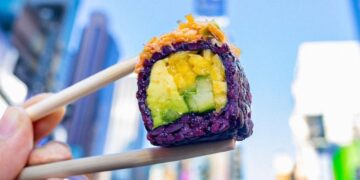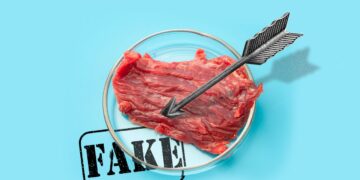[ad_1]
Issued on: Modified:
New York (AFP)
This week’s rousing inventory market debut of dairy different Oatly underlines anew individuals’s enduring urge for food for vegan merchandise. If something, that starvation has grown throughout the Covid-19 pandemic.
Following a heady Nasdaq debut on Thursday and one other surge in Friday’s session, the Swedish meals firm is now valued at about $13 billion, a lofty stage for one which took in $421 million in revenues final 12 months from gross sales of oat-based milk, ice cream and different merchandise not made with space-age expertise.
Oatly is much from alone within the rising house.
Earlier this month, Nestle launched a brand new non-dairy milk made with peas, including to a slate of plant-based choices for burgers, sausages and tuna.
At its huge chain of espresso outlets, Starbucks now affords 4 creamers constituted of one thing apart from cow’s milk: soy, almonds, coconut and, since March, oats.
And in Singapore, since December customers have the choice to buy lab-grown hen composed from animal muscle cells.
The choice meals business was already on the rise earlier than the pandemic, with startups like Past Meat and Unimaginable Meals successful reward for vegan gadgets that stunned many customers with their likeness to meat when it comes to style, odor and texture.
In April 2019, Burger King made waves after launching the primary vegan model of its widespread “Whopper” sandwich. Since then, most huge fast-food chains have adopted go well with, whereas producers have joined Nestle in introducing meatless grocery store merchandise.
Throughout Covid-19, meat alternate options loved a short lived surge in curiosity as some customers sought more healthy merchandise. Gross sales of Past Meat merchandise spiked initially earlier than moderating.
The surge additionally got here as manufacturing issues, due partly to Covid-19 outbreaks, briefly curtailed typical meat availability, although provides later stabilized.
“The pandemic opened individuals’s eyes to the dangers of the meat business, the relative fragility of its worth chain,” stated Jan Dutkiewicz, a fellow at Concordia College and Harvard Regulation Faculty who writes typically on meals and environmental research.
– Transformation forward? –
Investor curiosity in different meat is eager partly due to the environmental prices of typical meat manufacturing, in addition to issues about animal welfare.
Investments in different meals tripled in 2020 to $3.1 billion, in response to the Good Meals Institute, a nonprofit.
This included $2.1 billion for plant-based meat, egg and dairy firms; $360 million for cultivated meat firms; and $590 million for fermentation firms dedicated to protein alternate options.
Gross sales of meat alternate options jumped 45 % in 2020 in the US, however nonetheless account for only one.4 % of whole retail meat gross sales, in response to the Good Meals Institute.
#photo1
Historical past reveals it may be troublesome for meals substitutes to attain sustained success, stated Nicholas Fereday, an analyst specializing in shopper meals at Rabobank.
Regardless of the success of merchandise like aspartame and stevia, sugar stays the dominant espresso sweetener, he stated. And for now, no person has been capable of simulate widespread gadgets like roast beef or grilled pork with a vegan choice.
“Environmental and animal welfare issues will set off curiosity amongst people who find themselves on the lookout for manufacturers that align with their values and encourage the preliminary buy,” Fereday stated, however they’ll solely hold shopping for in the event that they just like the product.
Dutkiewicz notes that the traditional meat sector operates on comparatively slender revenue margins, with giant volumes wanted to the ventures economical.
If different proteins acquire sufficient floor, “there could also be some extent the place many giant firms will begin not simply diversifying into different proteins however will begin divesting from their current holdings in protein,” he stated.
Dutkiewicz drew a comparability with giant automotive firms now phasing out the inner combustion engine and transitioning to electrical vehicles.
However, he cautioned, “we’re on the very, very early levels of this.”
© 2021 AFP
[ad_2]
Source link







